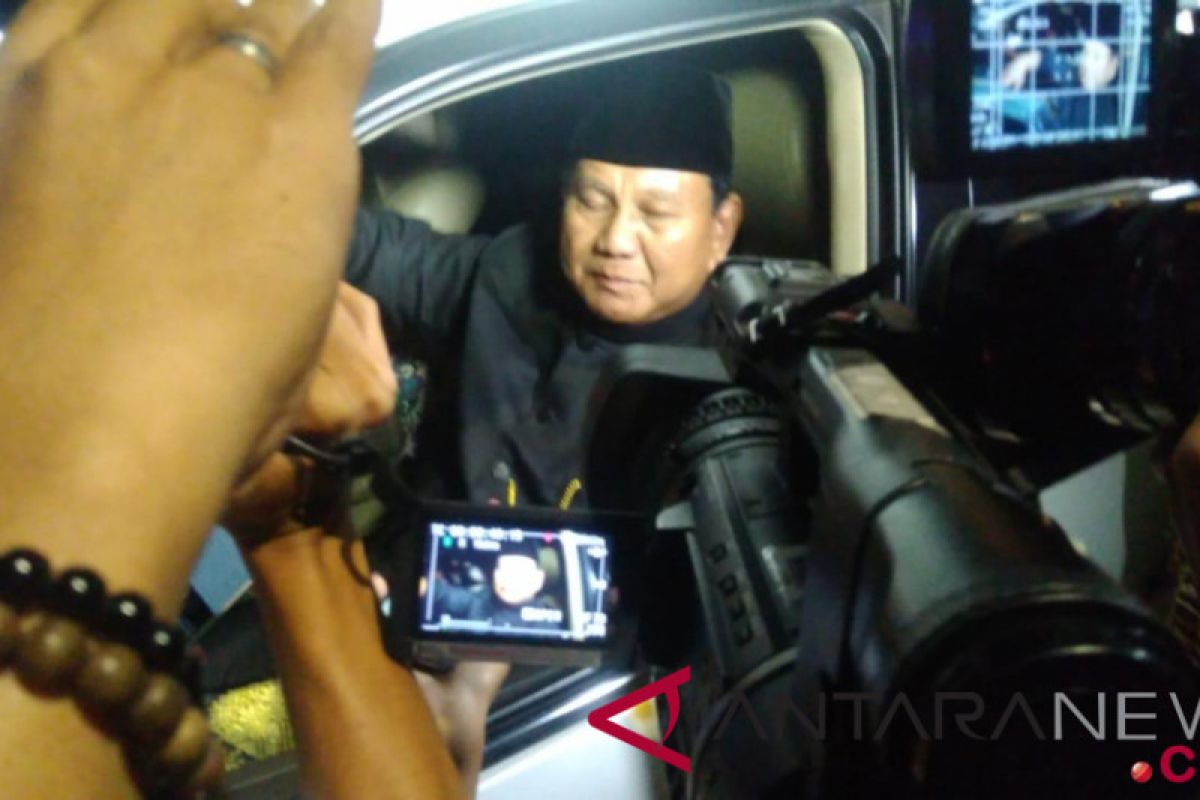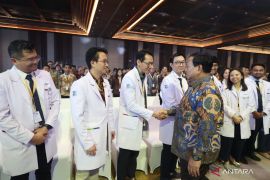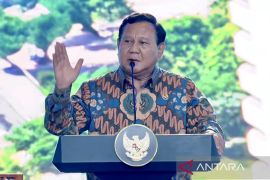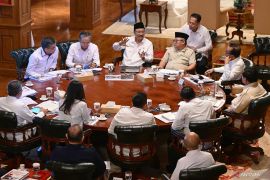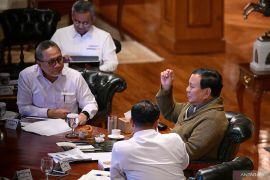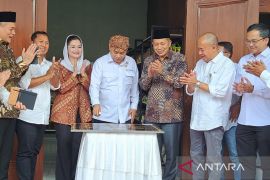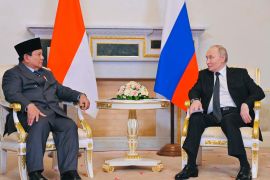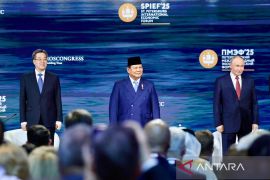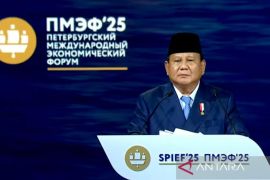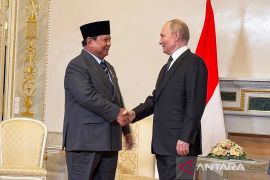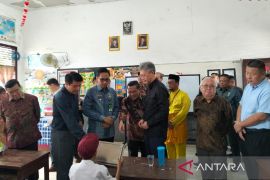"The medical specialists discussed matters relating to national health issues, especially how all the people would be able to enjoy health and medical services," Secretary General of the Great Indonesia Movement Party (Gerindra) Ahmad Muazani said.
He said that Subianto and the medical specialists focused on how all the people could receive medical services at hospitals.
Muazni said that so far the community still complained about medical services. In addition, they also discussed the budget deficit of the Health-Social Security Management Agency (BPJS-Kesehatan), which reached trillions of rupiahs.
"One of the issues discussed was the BPJS Health`s high deficit, reaching trillions of rupiahs and causing problems in the provision of health services to the people," he said.
According to him, this deficit can reduce the quality of health services and it should not occur, in order to guarantee the continuation of health services.
In the meantime, President Joko Widodo (Jokowi) received leaders of the Indonesian Medical Association (IDI) at the Merdeka Palace on the same day.
The head of state was accompanied by Cabinet Secretary Pramono Anung and Coordinator of the Presidential Special Staff Teten Masduki during the meeting.
The IDI delegation comprised IDI Chairman Prof Dr Ilham Oetama Marsis SpOG, Deputy Chairman Dr M. Daeng Faqih, Secretary General Dr Moh Aib Khumaidi SpOT, Treasurer Dr Ulul Albab SpOG, and Deputy Secretary General Dr Mahesa Paranadipa MKes.
On the occasion, IDI invited Jokowi to open the 30th Congress to be held in Samarinda, East Kalimantan, from October 23-28, 2018.
"The president expressed his readiness," Marsis stated at a press conference after meeting the president in Jakarta.
The IDI chairman expressed hope that the president would deliver a keynote speech and directives regarding the IDI congress, especially in the medical field.
In addition to the congress issue, Marsis noted that his party conveyed to the president the IDI`s concern for medical education in the future.
"We must be aware that the world of medical education has changed so rapidly, especially entering the fourth industrial revolution," he remarked.
Marsis revealed that several countries had changed in terms of acceleration and diagnosis.
Reporting by Imam Budilaksono
Editing by Andi Abdussalam
Reporter: Antara
Editor: Otniel Tamindael
Copyright © ANTARA 2018
